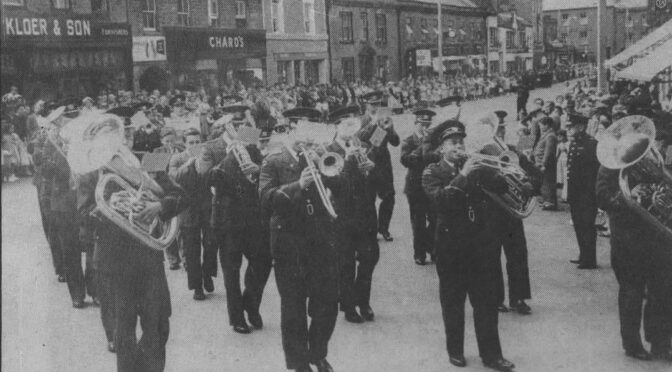We know from newspaper articles and indeed from the town going to the expense of building both a bandstand (early 20th century) and a band ‘shell’ (1930’s) that there has been a ‘Town Band’ at certain times, before WWII, as well as other visiting bands providing entertainment. The Bristol Mercury Guide to Burnham of 1884 mentions that “The rifle volunteer band performs upon the esplanade each Wednesday evening and Saturday afternoon, supplemented by occasional visits from the German bands of adjacent watering places.”
From 1885:
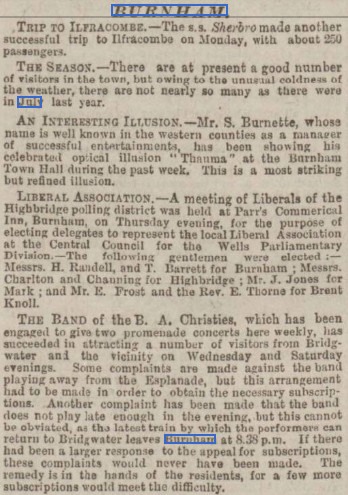
A later report:
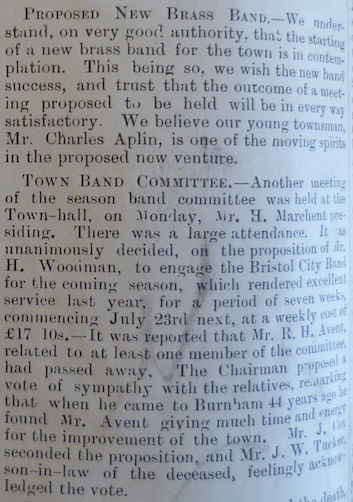
Below is a programme for Christy’s Band, date unknown, discovered amongst the Dupuis Diaries:
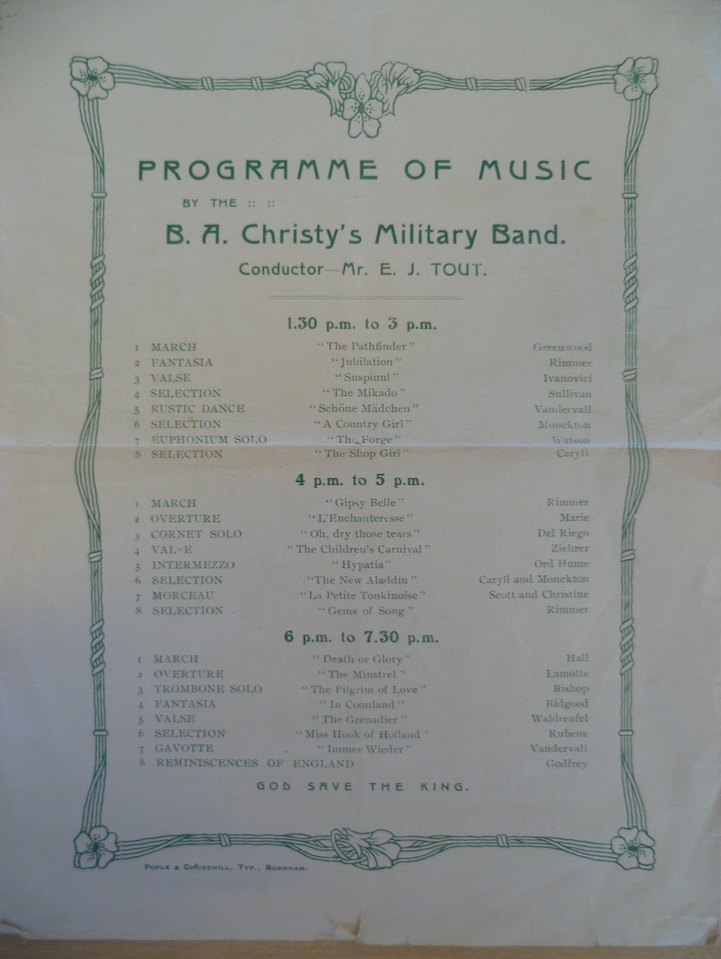
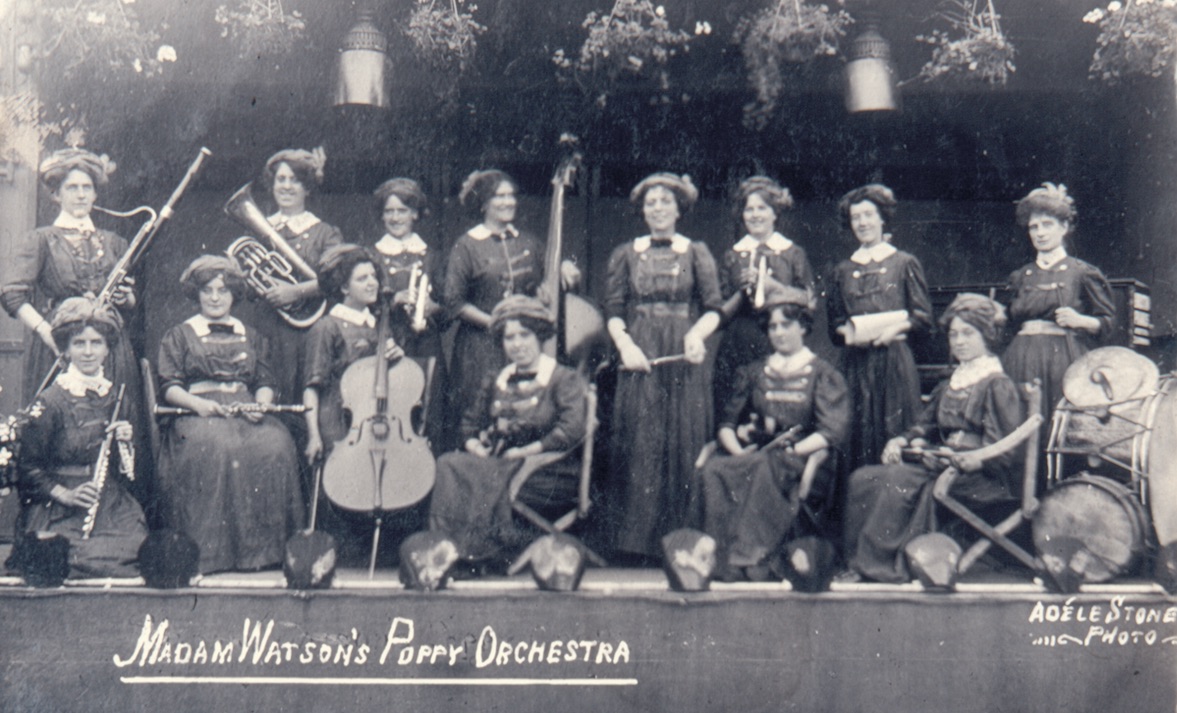
Above: Madame Watson’s Poppy Orchestra, date and location unknown but clearly an outdoor stage, could this be Manor Gardens or Shaftesbury Hall Gardens?
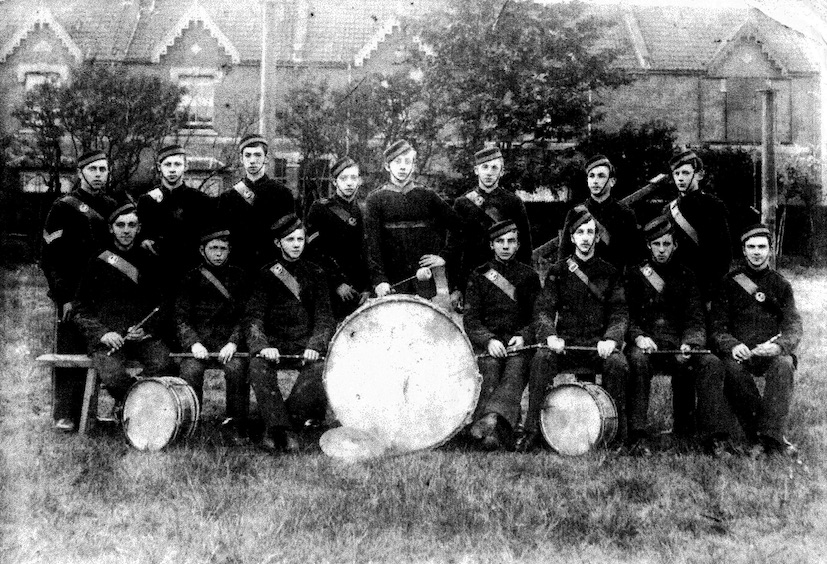
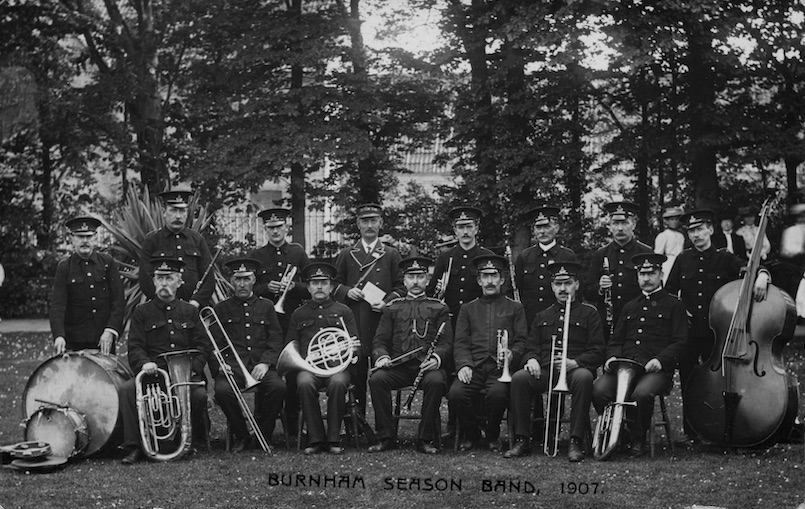
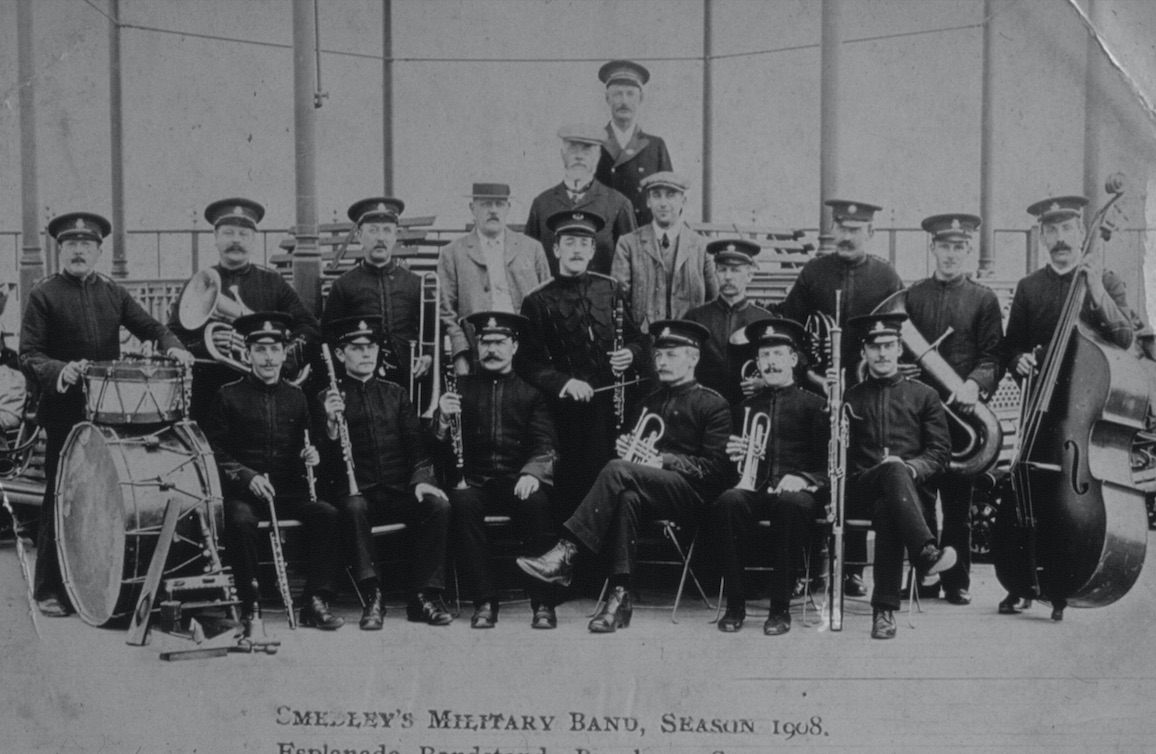
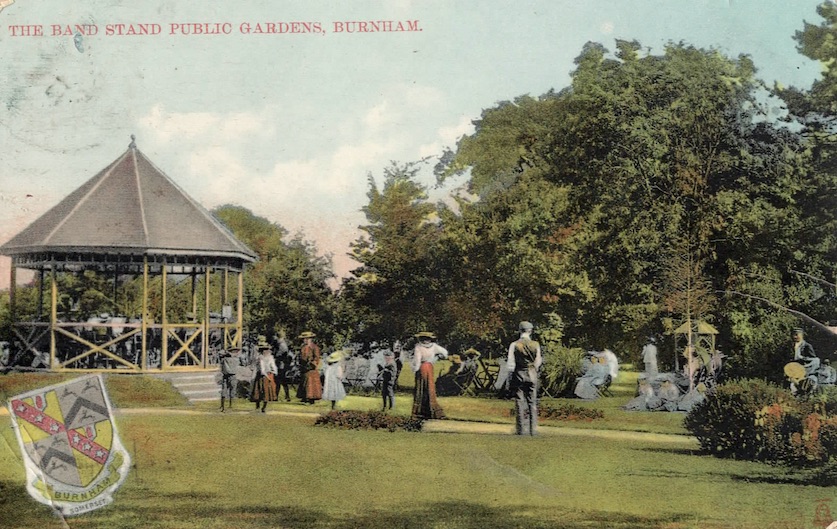
The bands playing at the bandstand above and at the Pavilion and the band shell below could have been local or visiting bands.
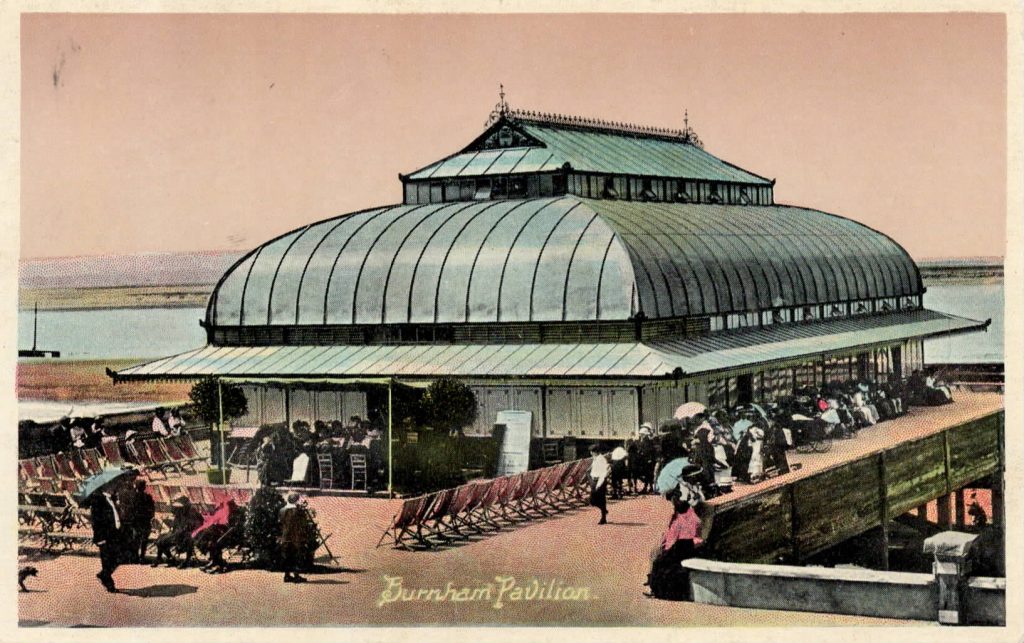
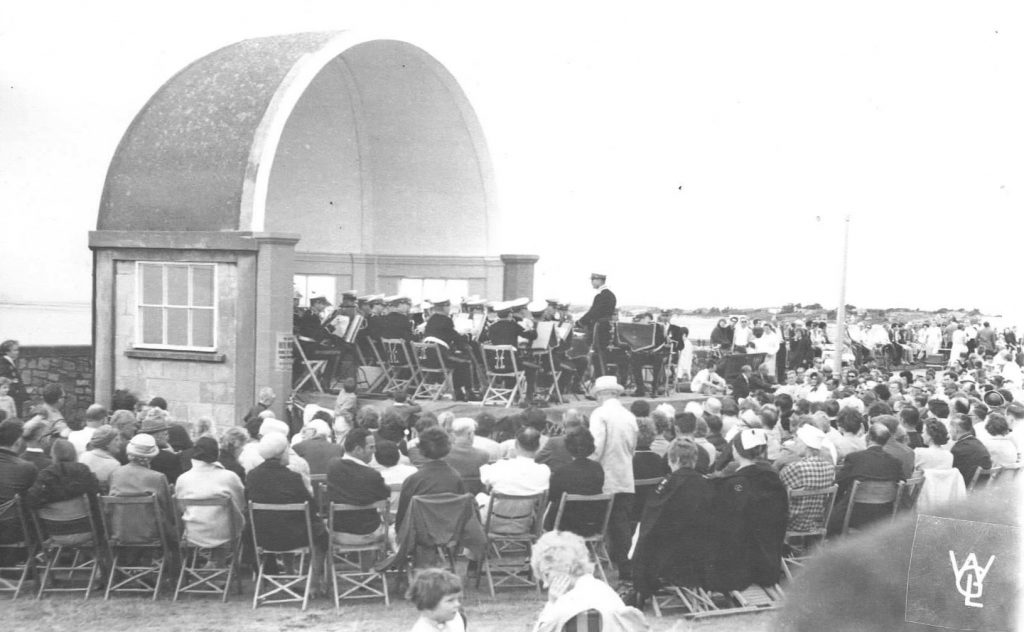
The Town Band as we know it has an unbroken history going back to the end of WWII, when it was led by Cecil King. Mr King had been a bandsman in the 3rd, 6th Dragoon Guards during the 1920s. By 1947 it had become a full brass ensemble and was given official status by the U.D.C. From that time regular performances were given in the Pavilion, Manor Gardens, the Town Hall and at the Holimarine holiday village.
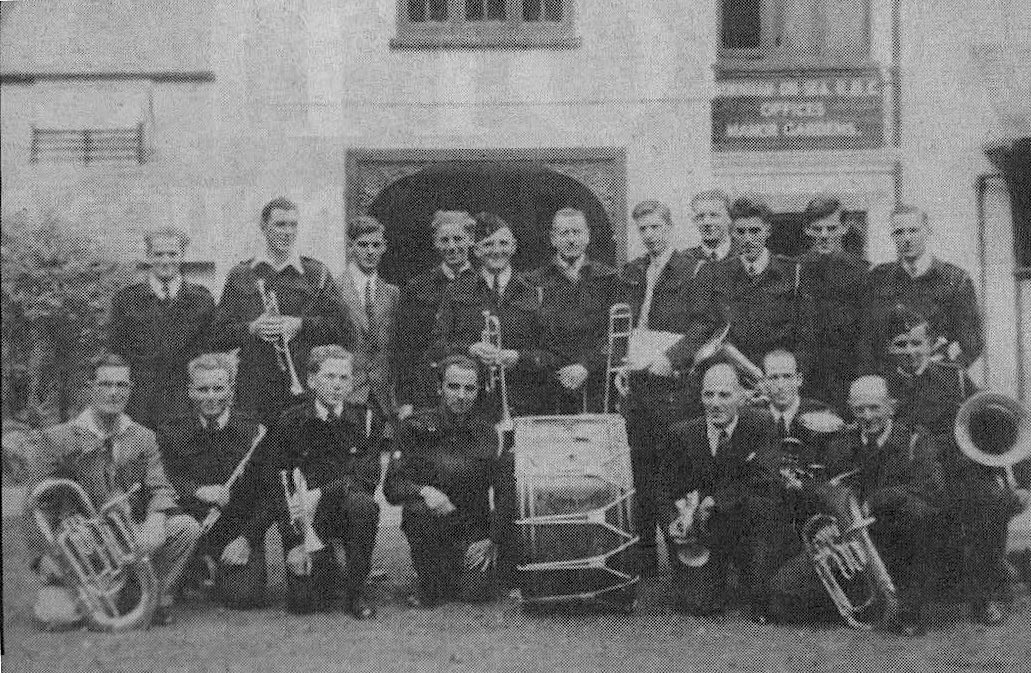
In 1952 the band entered its first competition at Exeter where it came 4th out of 20. The band continued to compete successfully across the south-west and nationally. The band used rooms at the Royal Clarence Hotel to rehearse until building its own headquarters in Worston lane in 1981
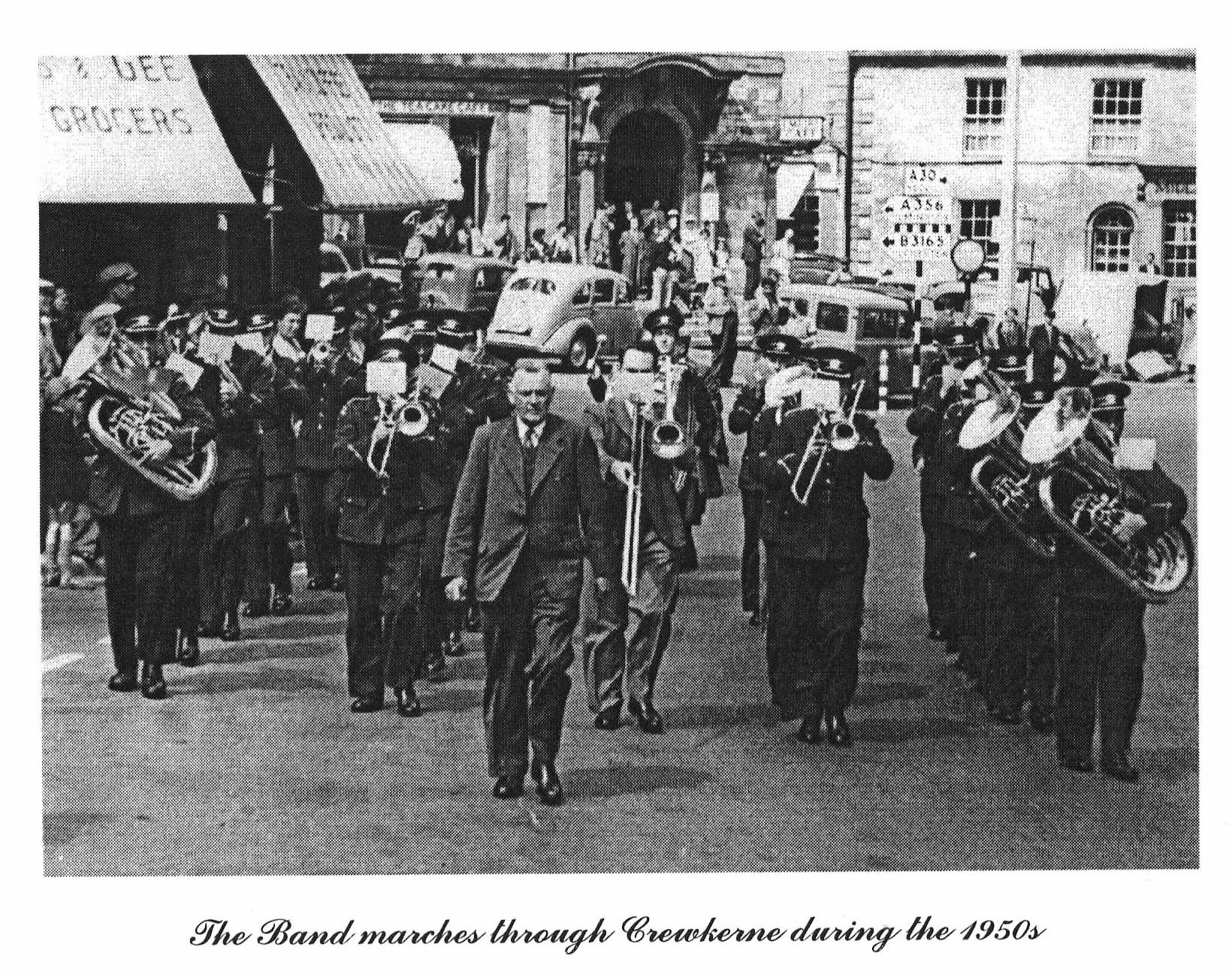
At one time the band also undertook marching engagements in other towns. Photos above and at top of page show engagements at Crewkerne during the 1950s.
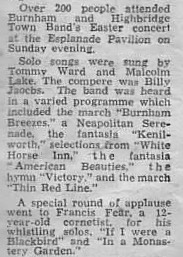
In 1953 the band combined with the Bridgwater Band to produce one side of a 78rpm record in honour of the Coronation with a piece entitled ‘Elizabeth Regina’ by Mr Miller of Burnham on Sea.
During the 1980s the band made 3 concert tours to Germany as part of a ‘twinning’ exchange.
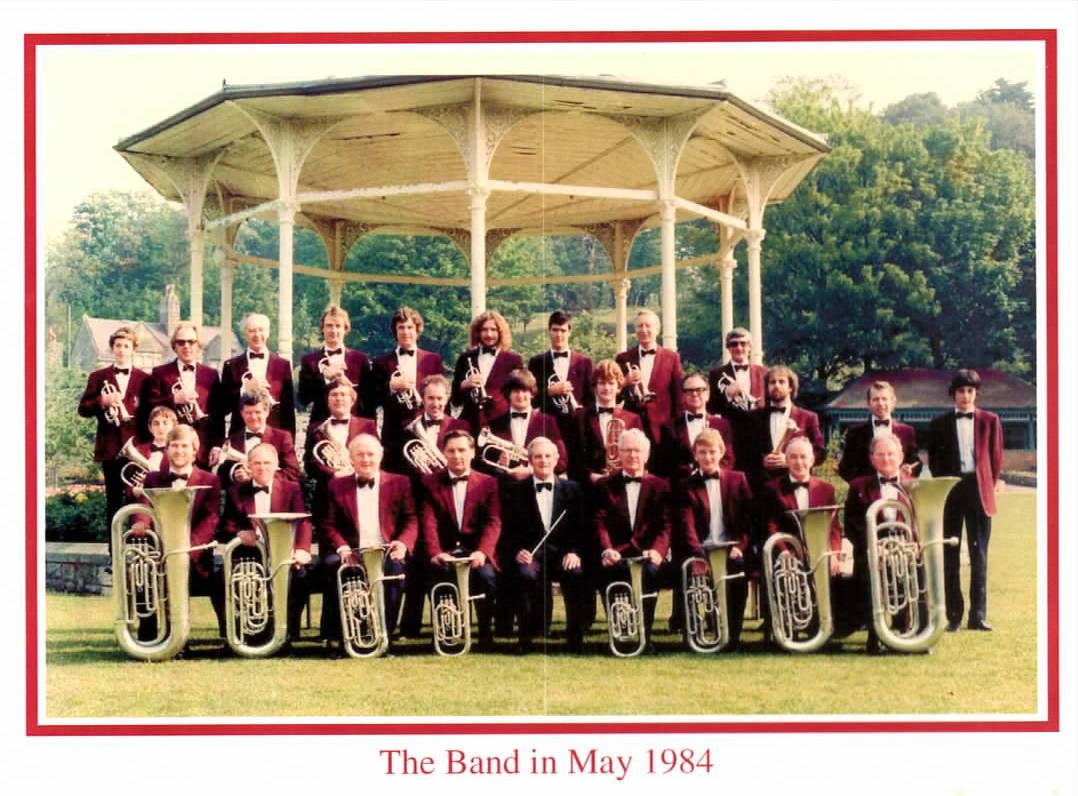
In an article by Ivor Punnett in the Burnham & Highbridge Weekly News in 1991 Cecil King recalled:
“Towards the end of the war someone said what a shame it was we didn’t have a band to lead the various church parades that were taking place. So I formed a bugle band and later on this was recognised as the town band. The first group I formed was called the United Services band and later we decided it would be a good thing to make it a brass band so we looked round for some instruments. The band [at Malmesbury] had folded and their instruments, which were very dirty, were stored in a loft. We offered £40 for the lot, which was accepted. Of course that was aa lot of money in those days. Then we needed uniforms but as they were expensive I had the idea of asking former members of the ARP and other wartime units if they would give us their blue serge outfits and forage caps. They made a very smart outfit for us and looked very well on parade and when we were marching. At that time Norris Mercer [band secretary] held a management job at Poples, a local builders. So when he advertised for staff he selected those who could play an instrument and we got three or four good men that way.”
“Once we were going to West Huntspill to play at a function and we stopped to pick up one of our players. He was a bit late and the coach had to wait. Then we saw him coming down the road, head down, running flat out. He was so anxious not to keep us waiting he ran slap bang into the back of the coach and broke the instrument he was carrying and which we had just had repaired at considerable expense. On another occasion we were marching at the head of a Home Guard stand-down parade. We had a man with a baton at our head and he thought we had to turn into a certain road. But the band knew differently and when he wheeled away they kept marching straight on, much to the amusement of the spectators. And I also remember band practice one bitterly cold night at the pavilion on the sea front at Burnham. It was so cold the valves of there instruments froze. The local paper had a headline ‘their tiny hands were frozen’ which we all thought was very witty.”

